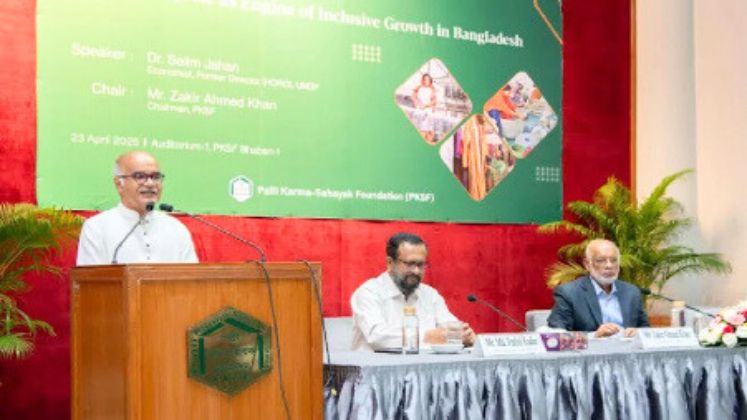
Economist Selim Jahan has emphasised the importance of developing policies that enable small and micro businesses to coexist and thrive alongside large corporations. He suggested that instead of viewing small and big enterprises as rivals, Government efforts should focus on fostering a complementary relationship between them.
Jahan made these comments during an event titled Small Ventures, Big Future: Microenterprise as Engine of Inclusive Growth in Bangladesh, held in Dhaka. The discussion arose in response to concerns about the increasing involvement of large firms in industries such as puffed rice and flattened rice production, which has posed challenges for small entrepreneurs. Participants noted that such competition has led to reduced sales, financial struggles, and even closures among micro and small businesses.
Highlighting the need for strategic intervention, Jahan, a former UNDP director, stated, “The Government must take measures to prevent large corporations from dominating all sectors. These major businesses should be positioned in a way that allows small entrepreneurs to operate efficiently and effectively. Without clear distinctions, the country risks becoming overly dependent on large business groups, which is a situation we are already witnessing.”
He further pointed out that small and micro enterprises have unique strengths in producing specific products, and that these advantages should be recognised and supported. “Large companies do not necessarily need to participate in those niche areas. By assigning certain tasks to small businesses and formulating a comprehensive policy framework, we can foster a more balanced and inclusive economic environment,” Jahan added.
The event was attended by notable figures including Mustafa K Mujeri, Executive Director of InM; Zakir Ahmed Khan, Chairman of PKSF; Md Fazlul Quader, Managing Director of PKSF; Kazi Iqbal, Research Director at BIDS; and Mohammad Yakub Hossain, Executive Director of MRA.






